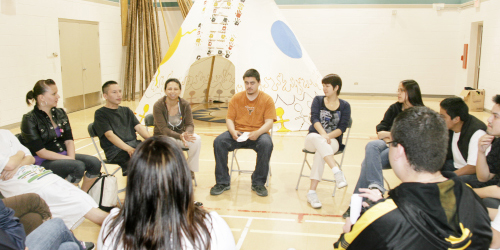Education and Early Childhood Learning





Latest Education and Early Childhood Learning News Releases
Updated: February 9, 2026
- Manitoba Government Increases School Funding By $79.8 Million, Bringing Total Investment to Nearly $2 Billion (February 9, 2026)
- Manitoba Government Takes Further Action to Strengthen School Safety (January 28, 2026)
- Work Begins at Four New Schools Under the Manitoba Jobs Agreement (January 26, 2026)
- Manitoba Government Opens Swan Valley Regional Secondary School's Cultural Arts Centre (January 24, 2026)
- Manitoba Government Hosts AI Summit to Foster Innovation in Education (January 16, 2026)
Land and Treaty Acknowledgement

We recognize that Manitoba is on the Treaty territories and ancestral lands of the Anishinaabe, Anishininewuk, Dakota Oyate, Denesuline, Ininiwak, and Nehethowuk peoples. We acknowledge Manitoba is located on the Homeland of the Red River Métis. We acknowledge northern Manitoba includes lands that were and are the ancestral lands of the Inuit.
We respect the spirit and intent of Treaties and Treaty Making and remain committed to working in partnership with First Nations, Inuit, and Métis people in the spirit of truth, reconciliation, and collaboration.
In keeping with our commitment to Truth and Reconciliation, we acknowledge the important role that education and schools play to ensure we collectively take time to think about, learn about, honour, and remember those who attended residential and day schools and those who did not come home. Facing difficult truths helps us on our paths toward Truth and Reconciliation.
Our response to the Commission on K to 12 Education targets a deep commitment to respond to the Truth and Reconciliation Commission (TRC) Calls to Action. The TRC report includes 94 Calls to Action for all Canadians. The National Centre for Truth and Reconciliation and the collection of TRC responses are found here:
National Centre for Truth and Reconciliation
National Centre for Truth and Reconciliation - TRC Response





